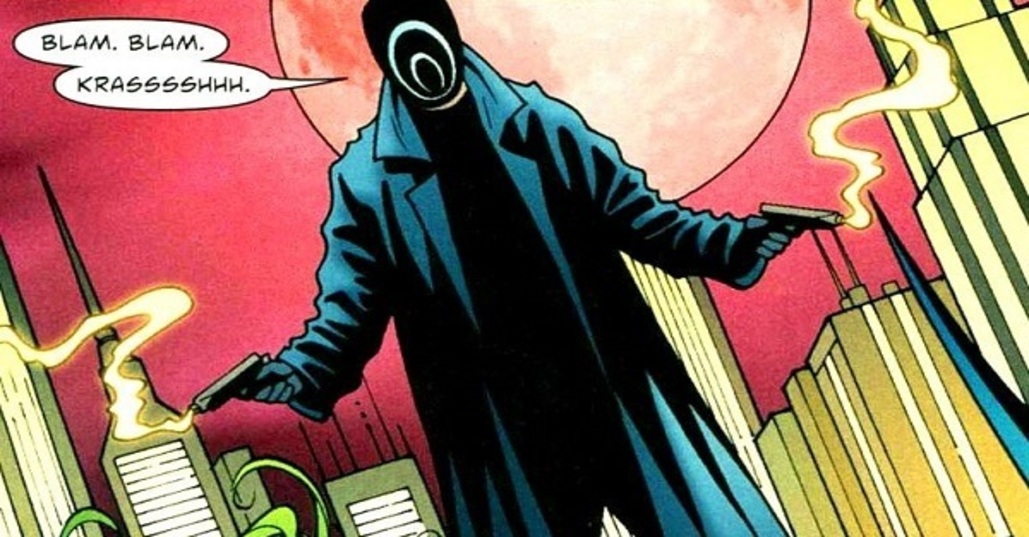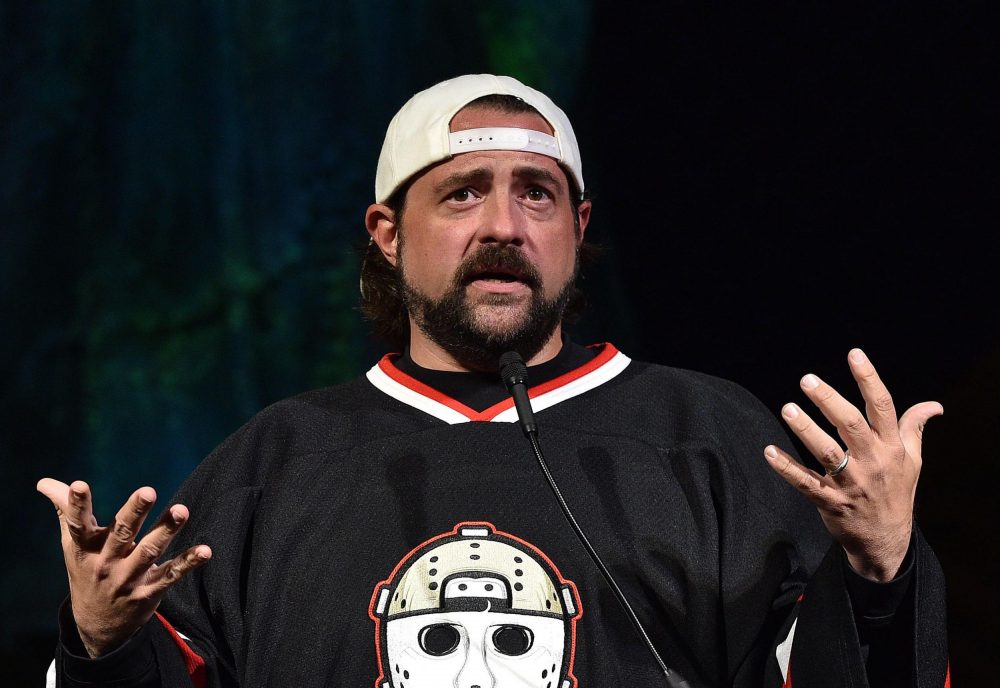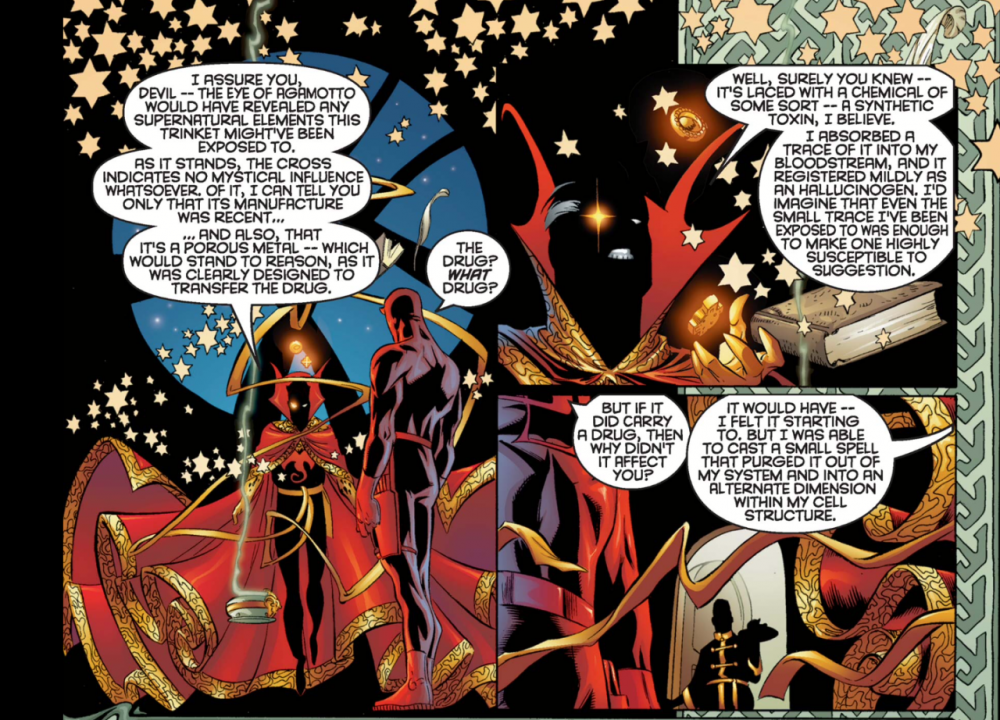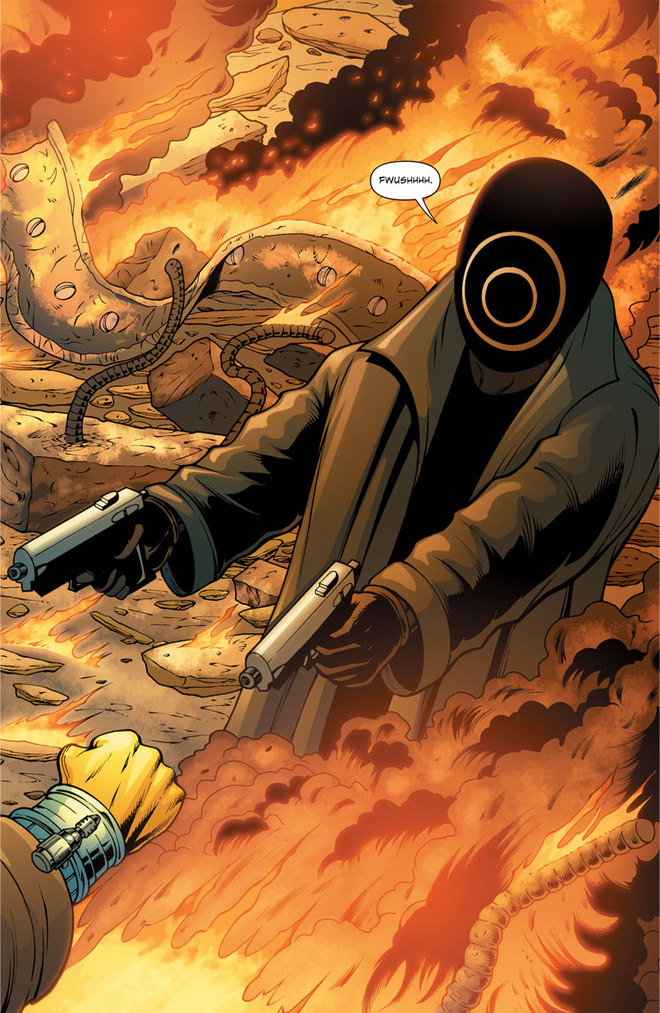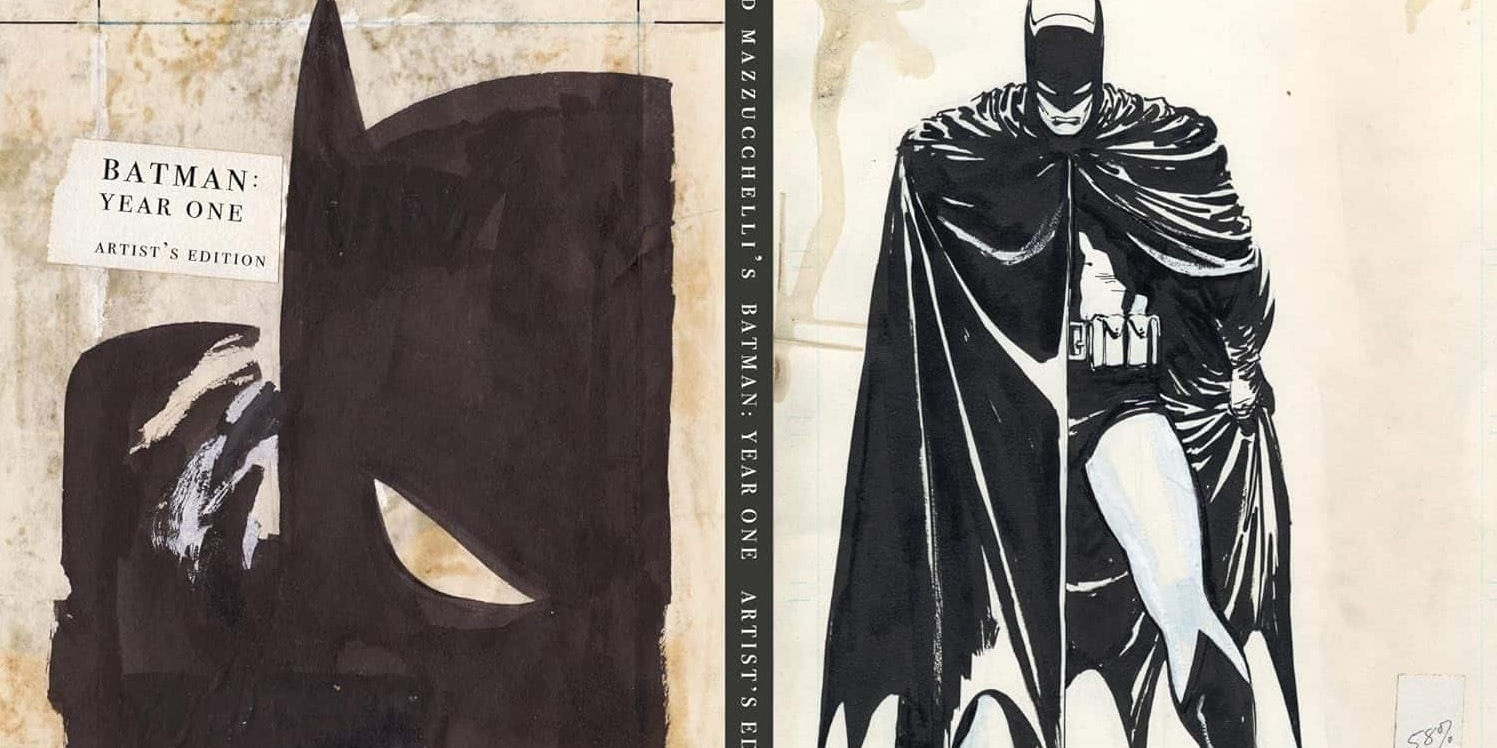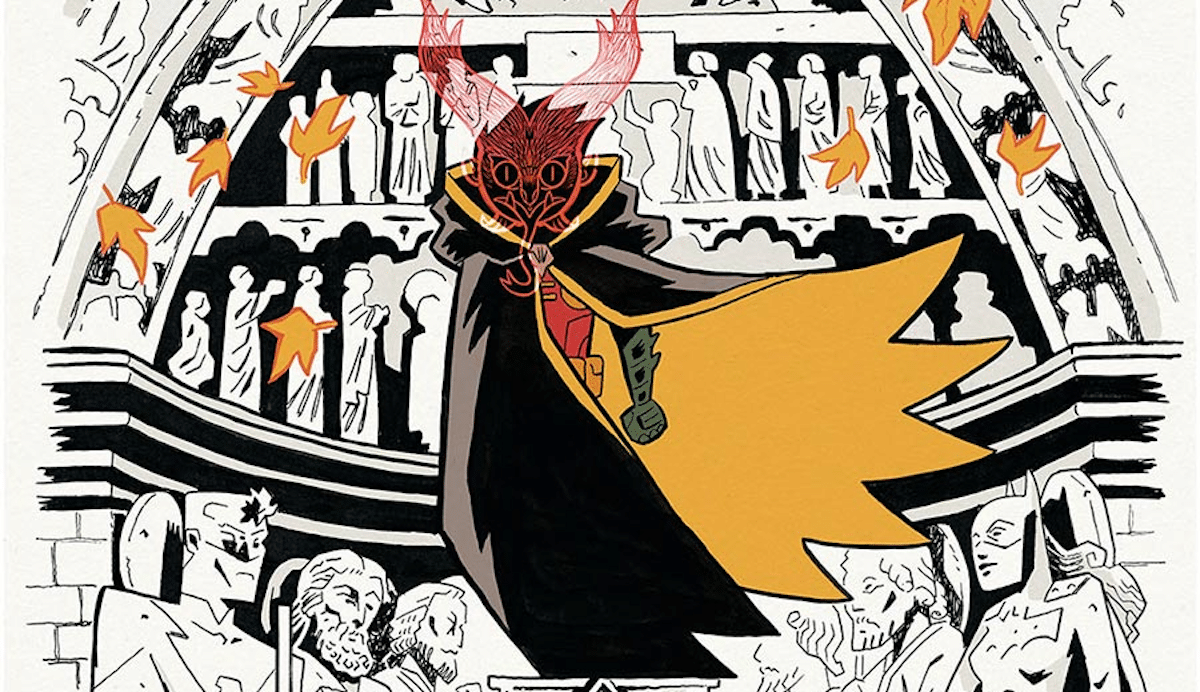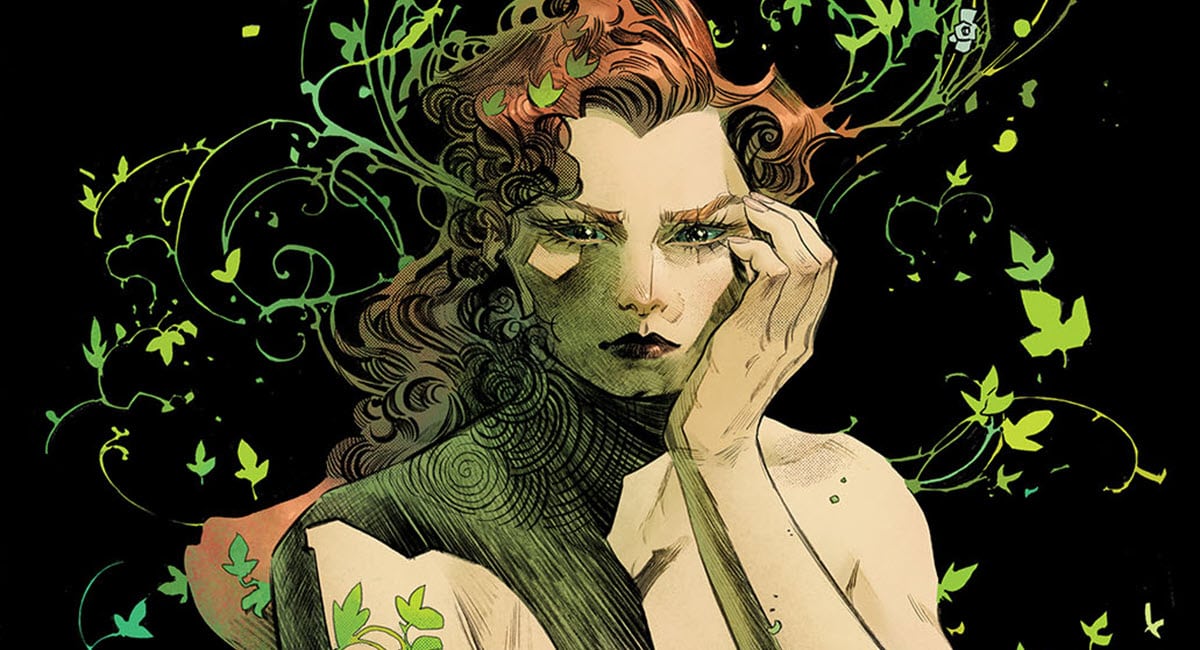The Beat’s Gregory Paul Silber has been accused of having a bit of an… obsessive personality. Each week in Silber Linings, he takes a humorous look at the weirdest, funniest, and most obscure bits of comics and pop culture that he can’t get out of his head.
We can finally breathe. After what felt like centuries of wondering how much worse things can possibly get for this fallen world, we finally have some semblance of–dare I say it?–hope. That’s right, after being absent for 11 years following Batman: The Widening Gyre #6, obscure DC Comics supervillain Onomatopoeia has finally returned in the pages of Future State: Catwoman #1 by Ram V and Otto Schmidt.
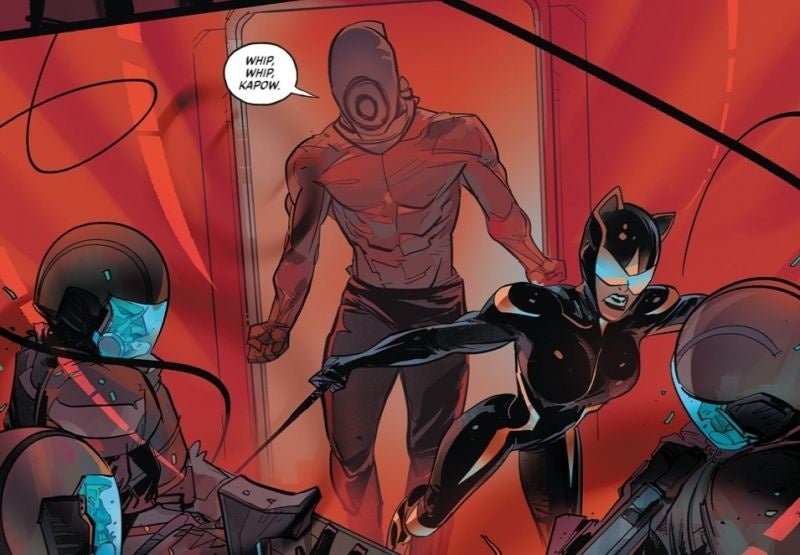
Onomatopoeia is one of my favorite little-known characters to talk about, especially with friends who don’t read comics and are gobsmacked to learn Kevin Smith has written comics at all.
“Yeah man, but all the ones I read are pretty terrible. Although I do like this one villain he co-created, Onomatopoeia.”
“Hahaha, what are his powers?”
“That’s literally it. He says sound effects out loud. Like if he shoots a gun that would normally have a ‘bang’ sound effect he just says ‘bang’ out loud.”
“Heh, so what makes him a villain?”
“I dunno, he’s good at shooting people, I guess.”
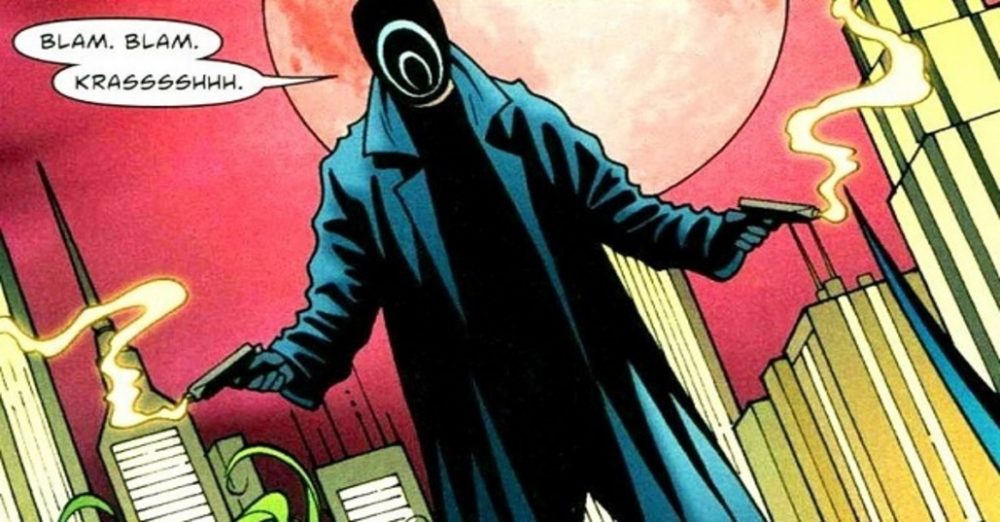
But is Onomatopoeia a good character? Before we determine that, I need to unpack my love-hate relationship with his co-creator: filmmaker, podcaster, and hockey jersey enthusiast Smith.
Onomatopoeia, co-created by artist Phil Hester, was introduced in 2002 within the pages of Green Arrow. I haven’t read that comic. Hester is a spectacular artist and I’ve heard it’s a decent run, but life’s short and I’m not in a hurry to read more superhero comics by the writer/director of Zack and Miri Make a Porno when I still haven’t read Love and Rockets.
I don’t hate Smith, but being a millennial geek from New Jersey, my feelings about him are more complicated now than they were when I fell in love with Clerks as a teen. I have enormous respect for how much mileage he got out of the story of ordinary, broke young people chatting it up at grungy shops and parking lots, and I’m sure I’d still enjoy it if I watched it now, despite some stuff that likely hasn’t aged well.
If you’re not from New Jersey, you don’t understand how meaningful it is to find the rare pop culture figure who is known for being affectionate towards their New Jersey upbringing. We have Bruce Springsteen, Chris Gethard… and that’s about it, other than Smith. I still can’t think of another movie as uniquely New Jersey as Mallrats, with its culturally-accurate tale of young men with nothing better to do than hang out at the mall all day. It’s no wonder that nearly three decades after a 23-year-old slacker became an indie phenomenon with his low-budget, black-and-white debut, he still has a bit of a “local boy makes good” reputation.
Plus, as much as I bristle at the idea of geeks being the underdogs when they pretty much rule the world right now, there still aren’t many celebrities who feel as much like the real deal as Smith. It’s no secret at this point that superheroes mean big business in Hollywood, but how many other Hollywood types own a comic book store? Or host a whole podcast about Batman that regularly features comic creators like Scott Snyder or the late, great Denny O’Neil as guests?
Unfortunately, much like being from New Jersey, there are some things about Smith that I find a bit… embarrassing. A large part of that is his entrenchment in the geekosphere. Look, he seems like a generally nice guy and I’m happy for him that he seems to enjoy his life and career. But I resent the fact that he, perhaps unwittingly, became Hollywood’s unofficial comic book geek ambassador, especially when his own comic book output has been almost uniformly horrible.
I mean, yes, Smith is still primarily a filmmaker. And I think even the most passionate among his cult fandom would agree that his filmography has its share of stinkers. Even Red State, a politically-charged horror flick that he’s spoken highly of as his attempt to make a serious “art” film, is a mess. I’d call it pretentious, but I don’t think it has enough on its mind to earn the descriptor.
Oh, and let’s not forget his unfortunate twitter history, with at least one tweet that’s akin to a psychological weapon (you’ve been warned).
Anyway, back to comics. Smith has been justifiably credited for helping to pull Marvel out of the wreckage of bankruptcy in the late 90s with his 8-issue 1998-1999 Daredevil run. Writing a B-list (said with love; Daredevil is my favorite Marvel hero) superhero book that’s successful enough to keep a seemingly-doomed publisher (oh how things change!) afloat is no small feat. But have you read that Guardian Devil story lately? It’s not good. It’s pretentious, almost unbearably grimdark, and almost unreadably overwritten. I hope letterers Liz Agraphiotis and Richard Starkings got a hefty bonus, because some pages seem to use as much space for balloons and captions as art. It’s tempting to call Joe Quesada’s (inked by Jimmy Palmiotti and colored by Richard Isanove) work on the title underrated, considering how difficult it must have been to perform such skillful visual storytelling under the limitations of a writer too in love with his own words, but Quesada became Marvel’s editor-in-chief and later, creative director, so I guess things worked out for him.
Then there’s Batman: Cacophony, the first comic I read by Smith. The three-issue 2008-2009 miniseries penciled by Smith’s old friend and business partner Walt “Comic Book Men” Flanagan is surprisingly competently-drawn for an artist with relatively few comic book credits (surely thanks largely to veteran inker Sandra Hope), but Smith once again contributes drivel. Still, I have to credit it for introducing me to Onomatopoeia.
The deeper I get into superhero comics, the more I embrace the idea that “dumb” doesn’t necessarily equal “bad.” Onomatopoeia may not have much of a personality beyond shooting and stabbing people and saying “bang” and “shunk,” but not every villain needs to be as layered and complex as Magneto. Sometimes they just need to hear a police siren and say “WEEOOO WEEOOO.”
Seriously, you can spend your entire career trying to be profound or smart or funny, but you’ve got an uphill battle writing a line I like better than “WEEOOO WEEOOO.”
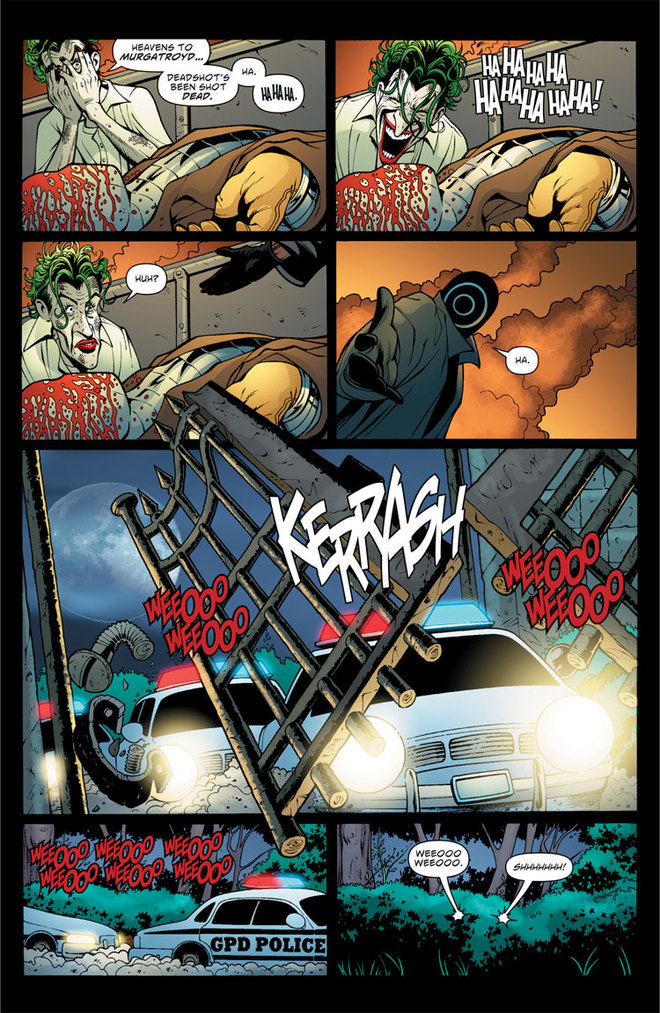
Onomatopoeia makes me utterly giddy. His gimmick is beautifully, maniacally simple, and crucially, there’s no other medium that can accommodate it like comics. He couldn’t exist in a movie or novel. Only comics make the unique visual distinctions between spoken dialogue and sound effects that renders Onomatopoeia’s spoken “boom” or “fwushhhh” so memorable and funny.
I tend to believe artists of all disciplines, including writers, should be judged by their best work rather than their worst. That’s why, as much as my love-hate relationship with Smith may fluctuate, the dial is closer to “love.”
Anyone could make a bad movie or write a bad comic book. But not everybody could make a movie as beloved as Clerks, or create a Z-list villain that makes me as happy as Onomatopoeia.


